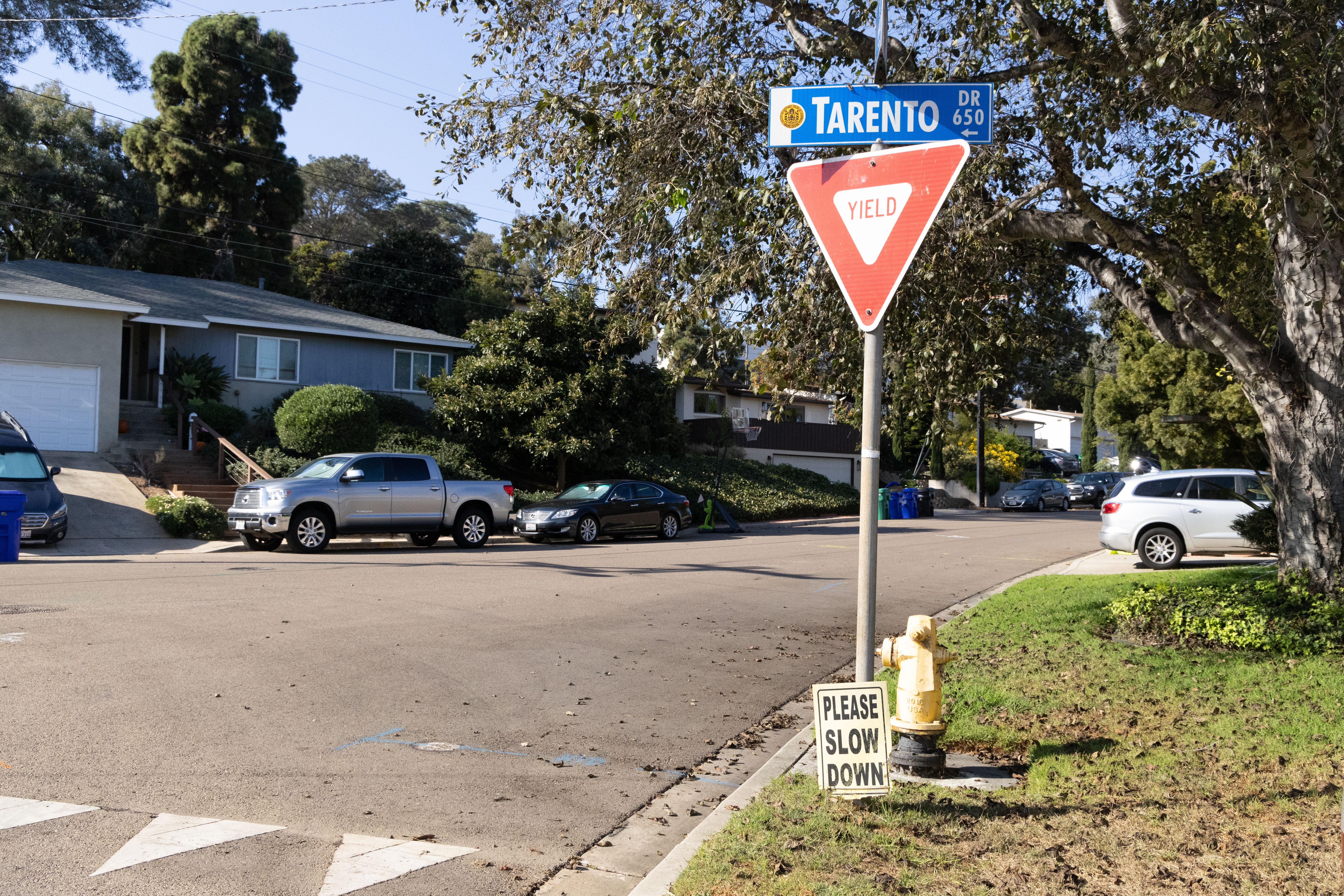
Point Loma Nazarene University students frequently face the challenge of finding parking on campus, prompting many to park on nearby residential streets. Warnings issued by PLNU Public Safety have been posted on cars with PLNU parking permits that line streets outside of campus, stating that students should avoid parking in the neighborhood as it is a “residential zone not meant for commercial use.” With limited options for students, the impact lands on nearby residents; they have mixed feelings.
Jay, a long-time resident of the Point Loma neighborhood, who requested the exclusion of his last name, said, “I’ve never been bothered by students parking on the streets since it’s a public road. I’m not sure why someone put up those [warnings].”
His sentiment was echoed by many neighbors on Tarento Drive and Dupont Street, all of whom emphasized that public streets are exactly that – public. The streets surrounding PLNU are not part of a permitted residential zone, meaning anyone is free to park there, according to David Surwilo, a San Diego Police Department community relations officer.
A male neighbor who requested anonymity lives with someone who uses a wheelchair.
“Many of us do have disabilities that make it hard to access our homes when people are taking up the spots in front of our houses. It’s a public road, you can park here, but I hope people remember that it makes it hard for some of us,” he said.
Although an annoyance to some residents, parking was less of a concern for many neighbors who said that speeding and traffic violations from cars coming out of the university was a major concern. The neighborhood’s winding streets, combined with foot traffic, runners, children from the elementary school returning home and children playing outside their homes, make reckless driving a threat.
“The speeding vehicles coming out of the university gates definitely raise safety concerns for the neighborhood,” said another neighbor who requested anonymity. “Stop signs appear to be more of a suggestion than a rule for many drivers.”
“I can’t tell you how often I step outside my house to cross the street, and someone in a car with a [PLNU parking permit] sticker is barreling down the side streets,” said a resident near the campus gate on Lomaland Drive, who requested anonymity.
Local law enforcement is responsible for handling traffic violations, but residents said they haven’t seen enough of a presence to deter speeding and unsafe driving habits.
“It’s not just inconvenient,” a neighbor jogging in the neighborhood said. “It’s dangerous, and it’s happening too often.”
Kaz Trypuc, assistant director of public safety at PLNU, said that while the university encourages students and employees to park on campus and provides additional parking to reduce the overflow into the neighborhood, they cannot enforce traffic laws beyond their property.
Public Safety officers will occasionally patrol the streets to see if any students are violating the university’s policy that first-years cannot have a vehicle parked on campus or in the surrounding neighborhoods, according to Trypuc. “But other than this, they do not have jurisdiction off-campus to enforce traffic violations, such as speeding or running stop signs, and must leave it to the city police,” he said.
For neighbors, the problem is less about who parks their car where, but how fast cars are going when they leave or come onto the campus.
“God forbid a child dies because someone is running late to class,” an anonymous neighbor living off Dupont Street said, “Slow it down.”
